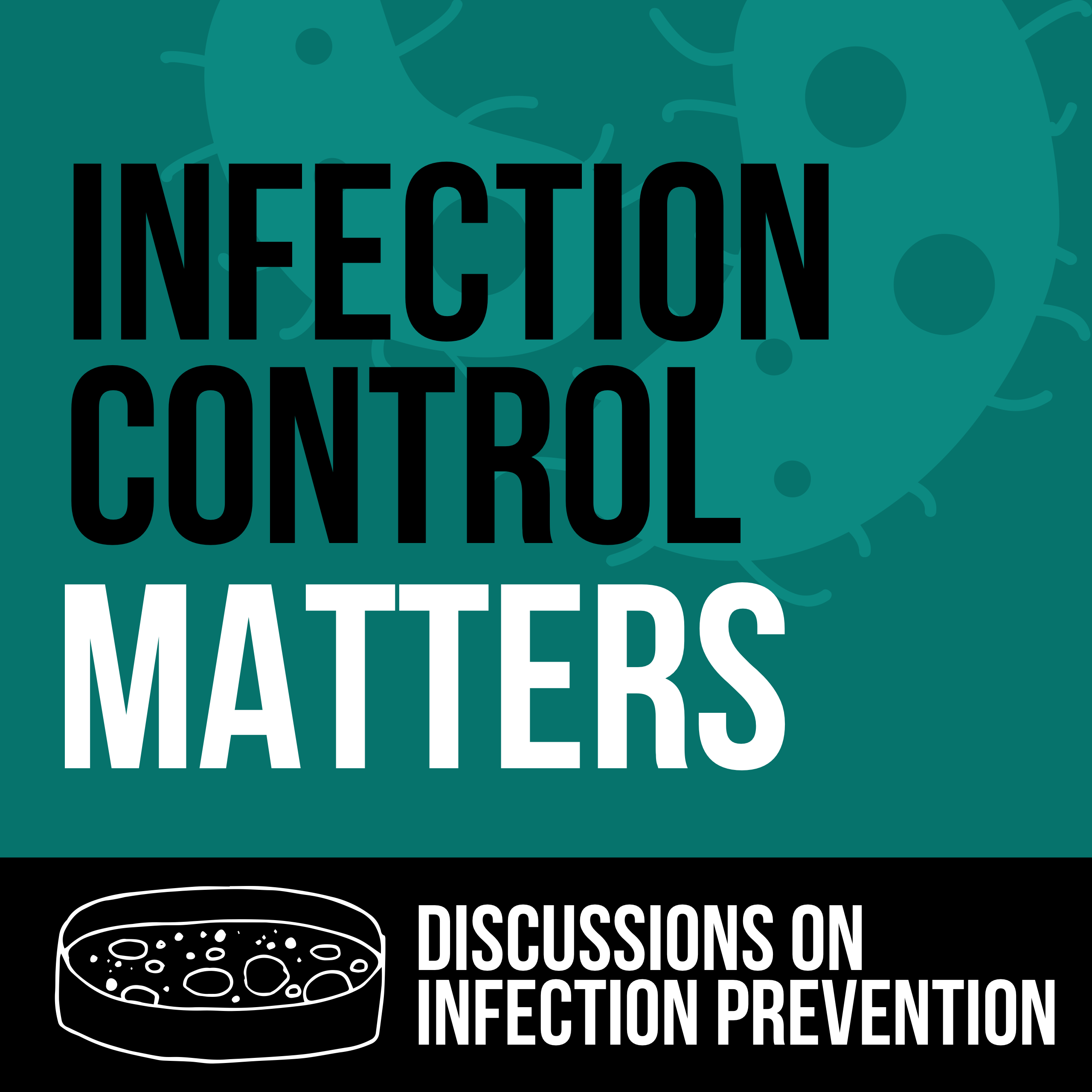Listen "Reducing harm at the Front Line: Oral Care driving down C. difficile and Line Care - the Power of Better Data"
Episode Synopsis
In this episode, Martin spoke to the authors of two compelling posters showcased at the 2025 Infection Prevention Society Conference in Brighton, each discussing practical, data-driven approaches to reducing avoidable harm. Download the posters and have a listen to two authors with a passion for their projects.
First, Catherine Lemsalu, a Dental Nurse from the IPC Team at University Hospital Plymouth discusses her quality-improvement work on an acute stroke ward, demonstrating how structured mouth-care assessment, targeted staff education, and consistent daily oral care contributed to reductions in non-ventilated hospital-acquired pneumonia and Clostridioides difficile infections. Her poster highlights how simple, early interventions—done well—can strengthen antimicrobial stewardship, improve patient outcomes, and build ward-level capability through mouth-care champions.
We then explored the development of a national surveillance framework and digital tool for vascular access device–related bloodstream infections (VAD-BSI) with Sue Rowlands from The Royal Wolverhampton NHS Trust. Their multidisciplinary initiative has created a standardised, user-friendly approach to classifying VAD-BSI, identifying risk factors, and generating automated visual outputs that support local reporting, audit, and education. Early pilot data show strong usability, enhanced insight into bloodstream infection epidemiology, and meaningful impact on line-care practice.
Posters can be downloaded here:
Reduction of hospital-acquired pneumonia and Clostridioides difficile infections through focused line care
Developing a surveillance framework and digital tool for Vascular Access Device-Related Bloodstream Infections (VAD-BSI): improving patient safety through local data and national insight
First, Catherine Lemsalu, a Dental Nurse from the IPC Team at University Hospital Plymouth discusses her quality-improvement work on an acute stroke ward, demonstrating how structured mouth-care assessment, targeted staff education, and consistent daily oral care contributed to reductions in non-ventilated hospital-acquired pneumonia and Clostridioides difficile infections. Her poster highlights how simple, early interventions—done well—can strengthen antimicrobial stewardship, improve patient outcomes, and build ward-level capability through mouth-care champions.
We then explored the development of a national surveillance framework and digital tool for vascular access device–related bloodstream infections (VAD-BSI) with Sue Rowlands from The Royal Wolverhampton NHS Trust. Their multidisciplinary initiative has created a standardised, user-friendly approach to classifying VAD-BSI, identifying risk factors, and generating automated visual outputs that support local reporting, audit, and education. Early pilot data show strong usability, enhanced insight into bloodstream infection epidemiology, and meaningful impact on line-care practice.
Posters can be downloaded here:
Reduction of hospital-acquired pneumonia and Clostridioides difficile infections through focused line care
Developing a surveillance framework and digital tool for Vascular Access Device-Related Bloodstream Infections (VAD-BSI): improving patient safety through local data and national insight
 ZARZA We are Zarza, the prestigious firm behind major projects in information technology.
ZARZA We are Zarza, the prestigious firm behind major projects in information technology.
